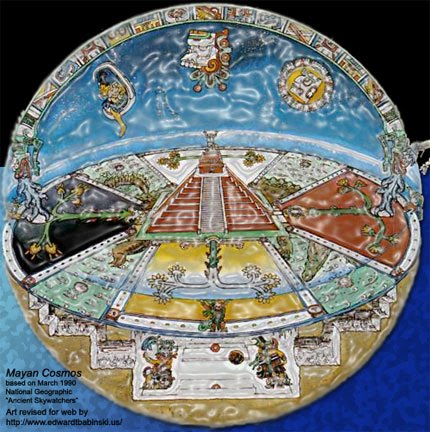
Main article: Ancient Mesopotamian religion In the latter case English hammer would be another cognate to the word. Others endorse the derivation from a Proto-Indo-European root *h₂éḱmō "stone" and, possibly, "heavenly vault" at the origin of this word, which then would have as cognates ancient Greek ἄκμων (ákmōn "anvil, pestle meteorite"), Persian آسمان ( âsemân, âsmân "stone, sling-stone sky, heaven") and Sanskrit अश्मन् ( aśman "stone, rock, sling-stone thunderbolt the firmament"). A connection to Proto-Indo-European *ḱem- "cover, shroud", via a reconstructed *k̑emen- or *k̑ōmen- "stone, heaven", has been proposed. The further derivation of this form is uncertain. All of these have been derived from a reconstructed Proto-Germanic form * hemina. The English term has cognates in the other Germanic languages: Old Saxon heƀan "sky, heaven" (hence also Middle Low German heven "sky"), Old Icelandic himinn, Gothic himins and those with a variant final -l: Old Frisian himel, himul "sky, heaven", Old Saxon and Old High German himil, Old Saxon and Middle Low German hemmel, Old Dutch and Dutch hemel, and modern German Himmel. By about 1000, heofon was being used in reference to the Christianized "place where God dwells", but originally, it had signified "sky, firmament" (e.g. The modern English word heaven is derived from the earlier ( Middle English) heven (attested 1159) this in turn was developed from the previous Old English form heofon. "heofones", an ancient Anglo-Saxon word for heavens in Beowulf

Any place of existence, either of humans, souls or deities, outside the tangible world (Heaven, Hell, or other) is referred to as the otherworld.Īt least in the Abrahamic faiths of Christianity, Islam, and some schools of Judaism, as well as Zoroastrianism, heaven is the realm of Afterlife where good actions in the previous life are rewarded for eternity ( hell being the place where bad behavior is punished). This cycle can be broken after a soul achieves Moksha or Nirvana. In Indian religions, heaven is considered as Svarga loka, and the soul is again subjected to rebirth in different living forms according to its karma. Some believe in the possibility of a heaven on Earth in a world to come.Īnother belief is in an axis mundi or world tree which connects the heavens, the terrestrial world, and the underworld.

Heaven is often described as a "highest place", the holiest place, a Paradise, in contrast to hell or the Underworld or the "low places" and universally or conditionally accessible by earthly beings according to various standards of divinity, goodness, piety, faith, or other virtues or right beliefs or simply divine will. According to the beliefs of some religions, heavenly beings can descend to Earth or incarnate and earthly beings can ascend to Heaven in the afterlife or, in exceptional cases, enter Heaven alive. Heaven, or the heavens, is a common religious cosmological or transcendent supernatural place where beings such as deities, angels, souls, saints, or venerated ancestors are said to originate, be enthroned, or reside. Dante and Beatrice gaze upon the highest heavens from Gustave Doré's illustrations to the Divine Comedy.


 0 kommentar(er)
0 kommentar(er)
